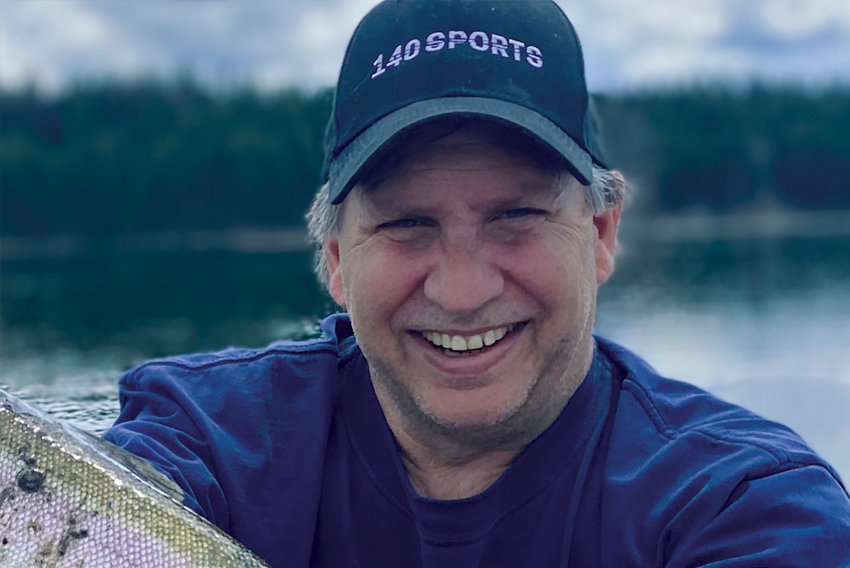Celebrating kids through sport
Reprinted from the "Responding to Feelings" issue of Visions Journal, 2021, 16 (4), pp. 20-21

One of the greatest quotes attributed to the late baseball legend Yogi Berra is “Baseball is 90% mental. The other half is physical.”
If we are to take this at face value (and why wouldn’t we?), then why are we not spending 90% of our time as coaches working on mental skills? I’ve asked myself this when, as a coach and a parent on the sidelines, I’ve seen so many players crushed under the weight of expectation, either real or imagined, their self-esteem slipping away as they walk off the playing field. I’ve seen kids look over at their parents and coaches with sadness in their eyes, almost crying out for help after they make a mistake.
Young people are searching for camaraderie, identity and help regulating exercise, sleep and diet. Sports scratch all these itches. But kids are dropping out of sports at a disturbing rate in their early teens when they need it most. I have seen sports change and alarming patterns develop.
So what happened to Berra’s 90%? My intuition that the mental aspect of sport is going missing laid the foundations for 140 Sports (90% mental + 50% physical = 140%), focused on combining mental health skills and sport. We’ve partnered with National Hope Talks and Alongside You Couselling1 to hold sports clinics, seminars and workshops for kids and youth ages 6–20 throughout BC. I am not a counsellor or therapist, nor do I have any mental health training. However, I am a coach with 45 years’ experience, a husband and a father of two amazing young ladies who have struggled with mental health issues that we, as a family, have had to deal with.
To gain better insight into how our young athletes are feeling, our team at 140 Sports has developed a book project called Dear Coach. The book is a compilation of letters from athletes about all the things they have wanted to share with their coaches or parents. Here are some that stood out for me:
“I was wrapped around this idea that if I didn’t do everything exactly perfect, I would let down my parents, teachers and coaches. All I wished for was someone to talk to me and tell me how proud they were of me and that it didn’t matter if I wasn’t perfect.”
“I feel like I have disappointed you when you tell me what I did wrong after a game instead of what I did right.”
“I do better and feel better about myself when I feel like a valuable member of a team.”
When I look at these letters, I can only think, What if I knew then what I know now? I’ve had my own transformation; not so long ago, I bought into the idea that competition came first. We are a sports family. My wife coaches and plays soccer, I coach ball and our kids played a pretty good calibre of both. Sports have been a massive part of our lives. Playing sports has taught us about leadership, teamwork and having a strong work ethic. It has also brought so many amazing people into our lives. I can’t even imagine who or what I would be without them.
But there was a time when I pushed the kids I coached, and my own kids too. Always setting the bar higher. Constant coaching in the car on the ride home and getting them to try harder. Everything I did for both my children came from a place of love and good intentions. I failed to realize that we cannot approach coaching and mentoring like we did when we were growing up because that world no longer exists. Sports have gone from being a way to have fun and hang out with your friends to more of a chore, a means to an end—and it is taking a toll on our children’s mental health.
For those of us who have had mental health issues affect our families, the mantra is always the same: I just want my kid to be healthy and happy. It’s time for us as coaches and parents to bring the same mindset to sports. Let sports be part of the platform for healthy and happy children.
How can we get started? I have learned a lot by reading up on how to embrace the mental side of sport and success.2 Coaches, don’t shy away from the mental side of the game. After all, a wise coach I know named Rocky Mortimore once told me, “Sports are a tool we use to teach kids about life.” And parents, enjoy watching your child be a child on the field, pitch, court or rink. It will be over before you know it. Or, to quote Yogi Berra once more, “It gets late early out there.”
About the author
Fred is a husband, father and coach. After noticing a lack of focus on kids’ emotions in sport, he founded 140 Sports, an organization that helps young people use sports to build valuable life skills. In 2019 Fred was inducted into the Delta Sports Hall of Fame. Every Friday night of the summer you’ll find Fred out on the field with the Special Olympics BC Delta softball team
Footnotes:
-
Learn more about these organizations at nationalhopetalks.com and alongsideyou.ca.
-
Two books I recommend are: In pursuit of excellence: How to win in sport and life through mental training, by Terry Orlick, and Mindset: The new psychology of success, by Carol Dweck.
